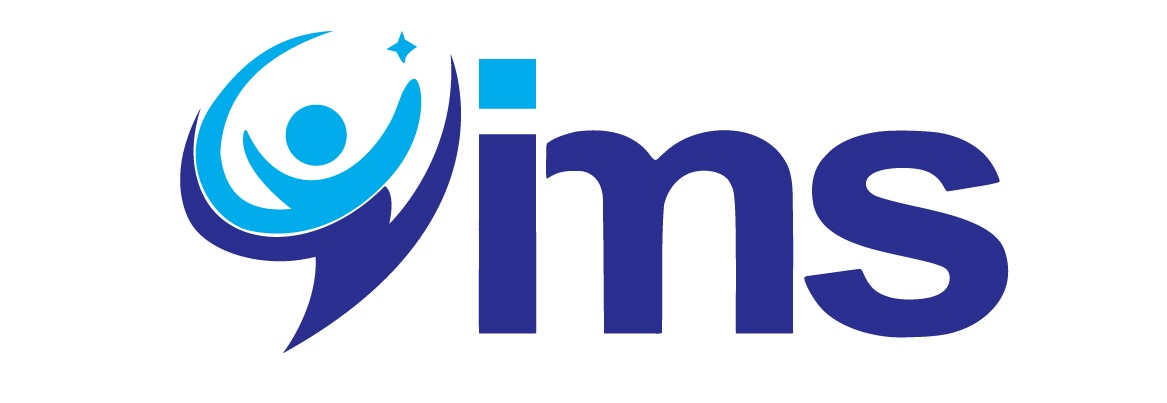



HR Training

Manpower Services

Third party Pay Roll Services
Placement
As placement consultants—also referred to as staffing companies or recruiting firms—we carry out a number of tasks associated with putting job searchers and employers in contact. These are a few typical things we do:
1-Candidate Sourcing: We continuously search for possible employees using a variety of platforms, including social media, online job sites, recommendations, and direct outreach.
2-Screening and Assessment: we assess candidates’ qualifications, skills, and experience through interviews, tests, and evaluations to determine their suitability for specific job roles.
3-Resume/CV Review and Improvement: We frequently offer advice on creating strong CVs and resumes that showcase applicants’ qualifications and experiences that are pertinent to the jobs we are applying for.
4-Interview Preparation: we offer coaching and advice to candidates on how to perform well in job interviews, including tips on presentation, communication, and answering common interview questions.
5-Job Matching: we match candidates with job openings based on their skills, qualifications, and career goals. we may have access to job opportunities that are not publicly advertised.
6-Employer Relationship Management: we maintain relationships with employers and businesses seeking to hire, understanding their staffing needs and preferences to better match them with suitable candidates.
7-Temporary and Contract Staffing: we specialize in providing temporary or contract workers to businesses for short-term projects or to cover staff absences.
8-Permanent Placement: we also facilitate the placement of candidates into permanent, full-time positions with client companies.
9-Negotiation and Placement: we often assist with salary negotiation, contract terms, and finalizing job offers between candidates and employers.
10-Follow-Up Support: After a candidate is placed, we provide them with continuous support, such as help with onboarding and regular check-ins to guarantee performance and work happiness.
We work in a number of different areas and businesses, such as IT, finance, healthcare, engineering, administrative, and more. We might be anything from big, international companies to smaller, niche-focused agencies.
Third party Pay Roll Services
Our involvement in third-party payroll services is vital to maintaining compliance with legal and regulatory obligations as well as enabling seamless operations. The following are some of the main duties we usually perform:
1-Client Consultation: We meet with client businesses to learn about their unique payroll requirements, including tax compliance, benefits management, employee compensation plans, and reporting guidelines.
2-System Implementation: we assist in setting up payroll systems and software, ensuring that we are configured to accurately calculate wages, deductions, and taxes according to relevant laws and company policies.
3-Data Management: we oversee the collection, validation, and maintenance of employee data, including personal information, work hours, salary rates, and tax withholding details.
4-Payroll Processing: we manage the entire payroll process, from inputting employee hours and earnings to calculating deductions for taxes, benefits, and other with holdings. we ensure accuracy and timeliness in processing payroll runs, whether we occur weekly, bi-weekly, or monthly.
5-Compliance Management: we stay abreast of changing payroll laws, regulations, and tax codes at the local, state, and federal levels. we ensure that payroll practices align with legal requirements and industry standards, minimizing the risk of penalties or fines for non-compliance.
6-Tax Filing and Reporting: In addition to income tax withholdings, Social Security payments, Medicare taxes, and unemployment insurance premiums, we also prepare and file payroll tax returns. At the conclusion of the tax year, we also produce and issue W-2 forms, which are employee tax statements.
7-Benefit Administration: we administer employee benefits programs, such as health insurance, retirement plans, and flexible spending accounts. we handle enrollment, eligibility verification, premium deductions, and coordination with insurance providers and retirement fund administrators.
8-Employee Support: we serve as points of contact for employee inquiries related to payroll, taxes, benefits, and other compensation matters. we provide guidance, assistance, and resolutions to address employee concerns promptly and accurately.
9-Audits and Reviews: We regularly examine and audit payroll data, procedures, and controls to look for anomalies, mistakes, or potential improvement areas. To guarantee data integrity and operational effectiveness, we put improvements and remedial measures into practice.
10-Client Reporting: we generate and deliver payroll reports to client companies, summarizing key metrics, trends, and financial insights related to employee compensation and labor costs. These reports help clients make informed decisions and track their payroll expenses over time.
All things considered, third-party payroll services are essential to the efficient management of payroll tasks, the assurance of regulatory compliance, and the provision of helpful assistance to client companies and their staff.
HR Training
1-Payroll Basics:
- Introduction to payroll management
- Understanding the payroll function within an organization
- Roles and responsibilities of payroll professionals
2-Legislation and Compliance:
- Overview of labor laws and regulations related to payroll
- Understanding tax laws, deductions, and exemptions
- Compliance with statutory requirements such as minimum wage laws, overtime regulations, and
tax filing deadlines
3-Payroll Processing:
- Calculating employee wages, salaries, and bonuses
- Deductions for taxes, benefits, and other withholdings
- Handling payroll adjustments, such as overtime, bonuses, and commissions
- Processing payroll for different pay frequencies (e.g., weekly, bi-weekly, monthly)
4-Payroll Software Training:
- Using payroll software effectively for processing payroll
- Navigating payroll software interfaces and menus
- Entering and updating employee data
- Generating payroll reports and analyzing payroll data
5-Taxation and Reporting:
- Understanding different types of taxes (e.g., income tax, social security, Medicare)
- Calculating and withholding taxes from employee wages
- Filing payroll taxes and reporting requirements
- Generating tax forms such as W-2s, 1099s, and quarterly tax reports
6-Benefits Administration:
- Administering employee benefits such as health insurance, retirement plans, and paid time off
- Calculating and deducting employee contributions for benefits
- Coordinating with insurance providers and retirement plan administrators
7-Payroll Audits and Compliance Checks:
- Conducting internal audits to ensure payroll accuracy and compliance
- Identifying and correcting payroll errors
- Responding to audits and inquiries from tax authorities or regulatory agencies
8-Communication and Documentation:
- Communicating payroll-related information to employees, such as pay stubs and tax forms
- Maintaining accurate payroll records and documentation
- Ensuring confidentiality and security of payroll data
9-Payroll Best Practices:
- Implementing best practices for payroll processing and management
- Streamlining payroll processes to improve efficiency and accuracy
- Staying updated on industry trends and emerging payroll technologies
10-Understanding ESIC and EPF Acts:
- Overview of the Employees’ State Insurance Act, 1948, and its applicability
- Overview of the Employees’ Provident Funds and Miscellaneous Provisions Act, 1952, and its provisions
- Understanding the objectives, coverage, and benefits under ESIC and EPF schemes
11-Coverage and Eligibility:
- Determining eligibility criteria for coverage under ESIC and EPF schemes
- Identifying employees eligible for ESIC and EPF benefits based on wage thresholds and other criteria
- Understanding exemptions and exceptions under ESIC and EPF Acts
12-Contributions and Calculations:
- Calculating employee and employer contributions for ESIC and EPF
- Understanding contribution rates, wage limits, and calculation methodologies
- Handling adjustments, arrears, and contributions for different pay periods
13-Registration and Compliance Procedures:
- Registering establishments and employees under ESIC and EPF schemes
- Maintaining registers, records, and documentation as per ESIC and EPF regulations
- Complying with reporting requirements, including monthly, quarterly, and annual filings
14-ESIC and EPF Benefits Administration:
- Understanding the benefits provided under ESIC, such as medical benefits, sickness benefits, maternity benefits, and disability benefits
- Understanding the benefits provided under EPF, including provident fund, pension, and insurance benefits
- Administering claims processes and facilitating employee access to benefits
15-Legal Compliance and Regulatory Updates:
- Ensuring compliance with ESIC and EPF laws, rules, and regulations
- Staying updated on changes to ESIC and EPF Acts, notifications, circulars, and amendments
- Understanding penalties, fines, and consequences for non-compliance with ESIC and EPF requirements
16-Audit and Inspection Preparedness:
- Preparing for ESIC and EPF audits and inspections
- Maintaining accurate records and documentation to demonstrate compliance
- Responding to audit queries and rectifying discrepancies identified during audits
17-ESIC and EPF Online Portals:
- Navigating ESIC and EPF online portals for registration, payments, filings, and other transactions
- Understanding the features, functionalities, and procedures for using ESIC and EPF online services
18-Recruitment and Selection:
- Understanding recruitment processes and strategies
- Sourcing candidates through various channels
- Screening resumes and conducting interviews
- Assessing candidate qualifications and fit for the organization
- Labor Welfare Funds
(A)Registration and Enrollment:
- Procedures for registration and enrollment with the labor welfare fund authorities
- Documentation required for registration and enrollment of establishments and employees
- Timelines and deadlines for registration and renewal of registration
(B)Contributions and Payments:
- Calculating employer and employee contributions to the labor welfare fund
- Understanding contribution rates, wage thresholds, and exemptions
- Procedures for making contributions, including payment methods and deadlines
Manpower Services
1-Recruitment Services: We help companies identify and choose the best candidates for open positions. This entails finding people via a variety of platforms, including social media, employment sites, recommendations, and direct outreach. We verify that we fulfill the standards of the job role and the corporate culture by screening resumes, holding interviews, and evaluating candidates.
2-Temporary Staffing Solutions: we offer temporary staffing solutions to businesses that require additional manpower for short-term projects, seasonal work, or to cover for staff shortages. we provide qualified and skilled temporary workers on a contract basis, handling tasks such as recruitment, payroll, and compliance.
3-Permanent Placement Services: We support companies in filling full-time, permanent roles with workers. On behalf of the business, we oversee every step of the hiring process, from finding candidates to negotiating employment offers. This include managing the hiring process, conducting interviews, and reviewing resumes.
4-Executive Search and Headhunting: Some we specialize in executive search and headhunting services, focusing on recruiting top-level executives, senior managers, and specialized professionals for key leadership roles within organizations. we use targeted approaches to identify and attract high-caliber candidates.
5-Skill Development and Training: we may offer skill development and training programs to enhance the employability of candidates and equip them with the necessary skills and competencies required by employers. These programs cover a wide range of topics, including technical skills, soft skills, industry-specific knowledge, and professional development.
6-Payroll Management: We offer businesses payroll management services, taking care of duties including processing salaries, deducting taxes, adhering to regulations, and managing employee benefits. Businesses can concentrate on their core competencies by outsourcing payroll management, which guarantees precise and prompt employee compensation disbursement.
7-Human Resource Consulting: we offer human resource consulting services to businesses, providing advice and guidance on various HR-related matters such as talent acquisition, performance management, employee relations, compensation and benefits, HR policies and procedures, and compliance with labor laws and regulations.
In general, IMS are essential to helping companies efficiently and effectively satisfy their workforce needs, whether it is through hiring, staffing, training, or HR consultancy.
